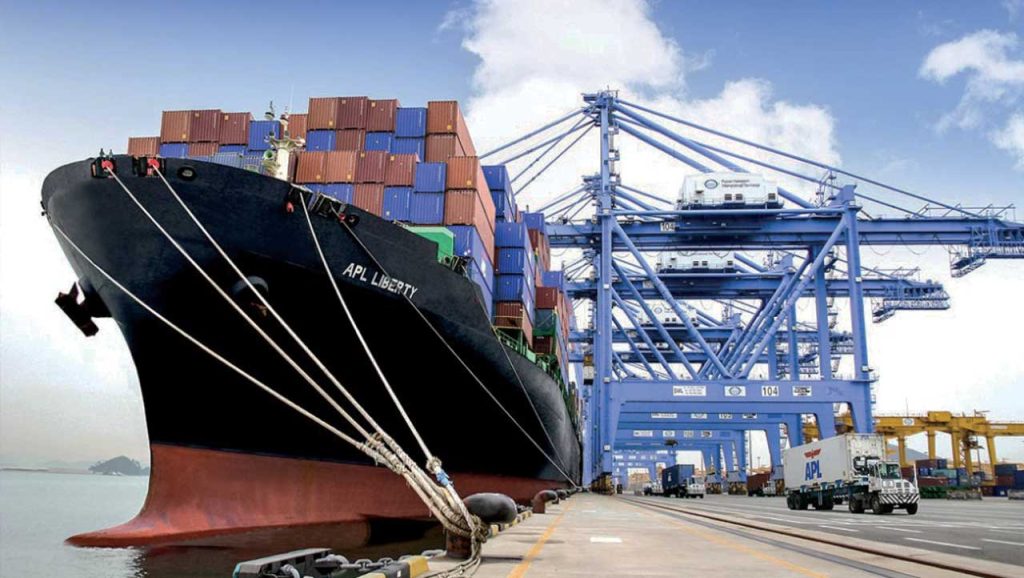*Bloomberg sees average price at $70/b *Reuters poll says price will be lower *Morgan Stanley, Standard Chartered vote for $78/b *Nigeria’s $60 budget benchmark unrealistic – Experts

Chuks Isiwu
14 January 2019, Sweetcrude, Lagos — Oil industry watchers have differed on the prospect of oil prices in the new year, with some projecting that prices would average $70 per barrel and others saying prices would be lower.
Multinational banking and financial services companies, United States’ Morgan Stanley and Britain’s Standard Chartered, were more optimistic, voting for $78 per barrel price. Citibank went for the lower end – $59.50 per barrel.
In Nigeria, local experts believe that any hope of a $60 per barrel oil price in the year could be misplaced, and as such insist that the nation’s $60 per barrel projected benchmark price for crude oil in the 2019 budget was unrealistic.
“The benchmark price of $60 used for the budget is not smart based on all the uncertainties and volatility surrounding the price of oil and surplus production,’’ said Mr Bank-Anthony Okoroafor, the chairman, Petroleum Technology Association of Nigeria, PETAN – an union of Nigerian indigenous technical oilfield service companies in the upstream and downstream sectors of the oil industry. According to him, “the reality today is $59 per barrel”.
Oil analysts, including banks, surveyed by Bloomberg reckon on a rebound in prices as fears of a recession prove misplaced.
The North Sea Brent crude oil benchmark will average $70 a barrel in 2019, almost a third higher than its price towards the last week of December 2018, the Bloomberg survey of oil analysts showed.
According to Reuters poll, however, crude oil prices look likely to trade below $70 per barrel in the year as oversupply and faltering growth weigh on prices. Specifically, it said, surplus production, much of it from the United States, and slowing economic growth are expected to undermine OPEC-led efforts to shore up the market.
The Reuters’ survey of 32 economists and analysts forecasts the Brent crude will average $69.13 per barrel in 2019.
Bloomberg survey sees prices at $70
Despite plans by the Organization of the Petroleum Exporting Countries and its allies to limit production in the new year to prevent a glut from forming, oil’s fortunes have increasingly been driven by moves in financial assets and concerns about the global economy, the Bloomberg survey reported. But, the analysts polled by agency expect that markets are about to tighten as growth stays strong, OPEC’s supply cuts kick in, and unintended losses in Venezuela and Iran escalate.
NCDMB, Shell sign lease agreement for gas development
“We could even see something similar to a V-shaped recovery next (this) year, on two very important conditions,” said Michael Cohen, head of energy and commodities research at Barclays Plc in New York. “One, that the reduction in OPEC exports leads to a reduction in inventories. And two, that we don’t see a further deterioration in macroeconomic conditions.”
The recent weakness in financial assets has been led by a darkening outlook for the global economy amid prolonged trade dispute between the U.S. and China, and as the U.S. Federal Reserve embarks on tightening monetary policy.
While the ensuing retreat in oil prices has brought relief to consumers, it’s battered the shares of companies like Exxon Mobil Corp. and BP Plc, as well as the economies of producers like Saudi Arabia.
So far, though, most commentators aren’t seeing an actual recession biting the oil market this year. The median forecast of 24 oil analysts in a Bloomberg survey projects that London-traded Brent will average $70 a barrel in 2019. The median forecast for West Texas Intermediate, WTI, is $61.13.
“Fundamentally speaking, we believe that prices are nearing a bottom,” said Michael Tran, commodities strategist at RBC Capital Markets LLC. “Global supply and demand should reach a fine balance next (this) year.”
Morgan Stanley, Standard Chartered vote for $78 price
Bloomberg stated that in the absence of a severe economic slump, most analysts anticipate that world oil consumption will continue to expand at roughly the pace seen in recent years, powered by emerging economies such as China.
And although doubts remain that OPEC will cut output deep enough to prevent a surplus, the survey shows analysts are confident that the group’s strategy will ultimately succeed. OPEC will begin implementing the curbs this month, and leading member Saudi Arabia has pledged to slash output by even more than it formally agreed to.
Some anticipate a vigorous rally. The most bullish forecasts in the survey, those of Morgan Stanley and Standard Chartered Plc, project that Brent will average $78 a barrel.
OPEC and other oil producers including Russia, known collectively as OPEC+, agreed earlier last month to cut production by 1.2 million barrels per day, bpd, to try to drain global crude inventories and support prices.
Following the agreement, the cuts were planned to take effect this January, and prices have fallen more than 15 percent since the announcement.
“The production cut announced by OPEC+ is likely sufficient to balance the market in the first half of 2019 and prevent inventories from building,” said Martijn Rats, managing director at Morgan Stanley.
Brent will average $59.50 – Citibank
With uncertainty, however, rife in both the political and economic spheres, the range of price estimates in the survey was broad, with a $20 gap between the highest and lowest. For the most bearish, Citigroup Inc., the relentless growth of U.S. shale will keep a cap on prices.
“Oil hits $70, $75 a barrel and U.S. production starts soaring,” said Ed Morse, the bank’s New York-based head of commodities research, who predicts that Brent will average $59.50 next year. “The so-called low-cost producers in OPEC and non-OPEC are losing market share.”
U.S. oil production is expected to surge to 12.06 million barrels a day in 2019, according to Energy Information Administration data, more than the other two major global producers — Saudi Arabia and Russia — are currently pumping.
Experts predict that the U.S. shale-oil industry may prove to be a victim of its own success, citing the case of Midland, Texas — the heartland of U.S. shale output — where prices fell below $40 a barrel last month for the first time since 2016. This has begun to cast doubts on how much U.S. supply will grow this year. “These weak prices are likely to force a slowdown in U.S. growth in the second half of 2019,” said Warren Patterson, senior commodities strategist at ING NV.
Oversupply, faltering growth to weigh on prices – Reuters poll
Going by the Reuters poll, crude oil prices look likely to trade below $70 per barrel in 2019 as surplus production, much of it from the United States, and slowing economic growth undermine OPEC-led efforts to shore up the market.
A survey of 32 economists and analysts forecasts the North Sea Brent crude oil benchmark will average $69.13 per barrel in 2019, more than $5 lower than last month’s projection. Brent has averaged $71.76 in 2018.
“The first half of 2019 will be dominated by concerns about oversupply,” said Ashley Petersen of Stratas Advisors.
“The market had largely priced in renewed production cuts from OPEC. As a result, we expect prices to sink if OPEC or Russia diverge from their production quotas notably,” said Cailin Birch, an analyst at the Economist Intelligence Unit.
“We expect the cuts to be renewed in April, when the deal comes up for review, as higher output from the U.S. and weakening global demand require continued restraint.”
Oil prices have fallen more than 40 percent from multi-year highs reached in early October last year on concerns about the impact of a trade dispute between the United States and China on global economic growth and demand for oil.
Another potential headwind this year is slowing consumption, the Reuters survey showed.
Quoting the U.S. Energy Information Administration, the survey said many analysts project demand growth of a little over 1 million bpd in 2019, compared with an increase of 1.54 million bpd in 2018.
U.S. shale oil output growth is expected to remain robust, adding to supply, it stated. The United States this year surpassed Russia and Saudi Arabia as the world’s biggest oil producer, with overall U.S. crude production climbing to a record 11.7 million bpd.
“We expect U.S. (companies) will increase shale oil production continuously over the next year,” said Adrià Morron Salmeron, economist at CaixaBank Research.
The Reuters poll forecast U.S. light crude would average $61.05 per barrel in 2019, versus $67.45 projected in the previous poll. It has averaged $64.98 in 2018.
Also, according to the survey, analysts believe the end of U.S. sanctions waivers on Iran’s oil exports will put extra pressure on oil prices.
‘Nigeria’s $60 budget benchmark unrealistic’
Meanwhile, Mr. Bank-Anthony Okoroafor, an energy expert, says Nigeria’s projected crude oil price benchmark of $60 per barrel is not realistic as it does not follow the uncertainties in the global oil market.
“The benchmark price of 60 dollars used for the budget is not smart based on all the uncertainties and volatility surrounding the price of oil and surplus production,’’ he said. According to him, the reality today is 59 dollar per barrel.
He added that the global crude oil price would average 61 dollars a barrel in 2019, according to the short-term energy outlook by the U.S. Energy Information Administration, EIA.
“The estimate is 11 dollars per barrel lower than the EIA prediction just a month ago. The forecast dropped after oil prices dipped below 50 dollars a barrel in November, the average for the month was 65 dollars.
“They believed higher U.S. supplies will flood the market at the same time slowing global growth and will cut into demand. Saudi Arabia and Russia had also produced oil at record levels,” he said.
Mr. Okoroafor also believes Nigeria’s aspiration to produce 2.3 million barrels of crude oil per day, as contained in the 2019 budget, is equally faulty. This, he said, is so because of “OPEC’s plan to cut production in order to shore up prices, and growing crude inventory and excess supply verse demand”.
He said: “On Dec. 7, OPEC agreed to cut 1.2 million barrel per day from the October levels. Members will cut 800,000 barrels per day and allies will cut 400,000 bpd. Cuts will continue for six months.
“OPEC’s goal is to return prices to 70 dollars a barrel by early 2019. Will this happen based on the volatility of oil prices today? Only time will tell,’’ he said
Okoroafor stressed that the Nigerian government must consider the uncertainties in the global market in the handling of the 2019 budget, noting that oil price volatility and attempt by the U.S. to push more oil into the market would continue in 2019.
According to him, the U.S. average daily production would rise to a record level of 12.1 million barrels per day, mbpd, in 2019 from 9.4 mbpd in 2017 and 10.9 mbpd in 2018.
Also, he expects more output from the Persian Gulf. “The oil wells in Gulf cannot stop producing even at low oil prices. OPEC has not been willing to cut output enough to rebase the oil price.
“Members do not want to lose market share to U.S. companies,” the PETAN chairman said.
“Increased U.S. production in 2019 means OPEC will no longer have the clout to control prices.
“Finally, global demand for oil will drop in 2019 as China which consumes 12 percent of the global oil production has slowed down,” he added, noting that these indicators must be studied by the government effectively to determine the 2019 budget.
The Director-General, Lagos Chamber of Commerce and Industry, LCCI, Mr. Muda Yusuf, also spoke on the prospect of the nation’s 2019 budget given the volatility in oil prices and a possible, continued decline in the new year.
According to him, with crude oil prices down to $54 per barrel as at December 2018, there would be pressure on the budget since that price is $6 lower that the budget projection.
“This ($54 price) is already below the 2019-2021 Medium-Term Expenditure Framework (MTEF) and 2019 budget benchmark of $60 per barrel.
“Declining global oil price will likely distort Federal Government’s economic projections for 2019 as well as impact adversely on its MTEF if the trend is not reversed,” he said.



